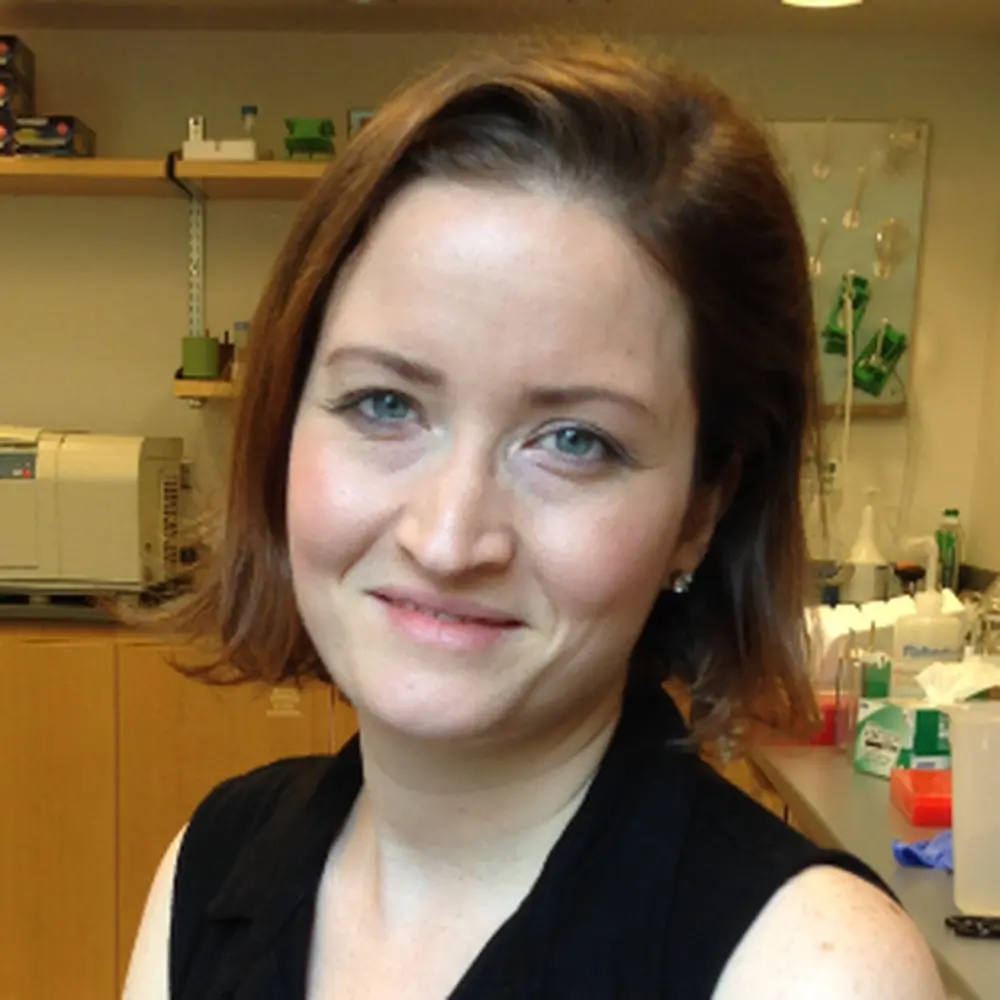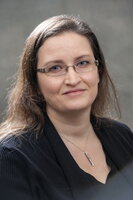
Professor Hatoum was one of ten new faculty hires made in the School of Molecular and Cellular Biology in the last three years. Hatoum is an assistant professor of microbiology and is part of the Microbial Systems Initiative.
Tell us about your lab and your research focus, including how you came to choose or specialize in this area.
Our research seeks to understand how bacteria and their viruses (known as phages) interact with each other at the molecular level, and explore new paradigms that question fundamental assumptions regarding bacterial immunity. My interest in phage-host interactions was sparked while in graduate school at Cornell University. There, I worked with Jeff Roberts on understanding mechanisms of bacterial transcription and how phage-encoded proteins can manipulate the process to meet their own needs. Phages are parasites of bacteria—they attach to a specific host, inject their genetic material, and hijack the cell’s enzymes and energy stores to replicate exponentially in a process that typically causes cell death. In response, bacteria have evolved a diverse array of complex immune systems to fend off invading phages.
Research in my lab uses the tools of molecular biology, genetic engineering, and biochemistry to probe and understand the defensive and offensive molecular mechanisms that bacteria and phages use against each other. For example, our recent research has revealed new mechanisms of the CRISPR-Cas10 immune pathway and discovered a novel anti-phage defense system conserved in diverse bacteria. We are also interested in leveraging the antimicrobial properties of phages to develop alternatives to conventional antibiotics, and exploring novel genome engineering technologies and other potential applications for bacterial immune systems such as CRISPR-Cas.
What is especially exciting about this particular area of research, at this time?
Recently there has been a resurgence of interest in understanding the dynamic interactions between phages and their hosts because of the transformative technologies that basic insights have enabled. As a notable example, the recent discovery of adaptive anti-phage immunity mediated by bacterial CRISPR-Cas systems has led to the invention of a revolutionary genome engineering technology which has accelerated the pace of genetic research and opened up new frontiers in agriculture and medicine. Since bacteria and phages have been co-evolving for billions of years, there is a vast pool of yet uncharacterized immune systems just waiting to be discovered, each with the potential to inspire similar ground-breaking technologies. Phages themselves have also been exploited for a myriad of biotechnological and therapeutic applications. Now, amidst the current revolution in genomics and veritable renaissance in phage research, it is truly an exciting time to be a part of it all.
What interested you the most about becoming a faculty member in the School of Molecular and Cellular Biology and the University of Illinois?
It is no secret that the University of Illinois is a world-class leader in research and innovation. For me, the biggest draws to UIUC’s School of Molecular and Cellular Biology are its strong graduate program and stimulating intellectual environment, both of which are very conducive to disciplinary and interdisciplinary exchange of ideas and collaborations. I feel honored and privileged to join the Microbiology Department alongside such an accomplished group of faculty.
What are your teaching interests?
Prior to joining UIUC, I was a faculty member at the University of Alabama, where I developed and taught two major courses—Microbiology II and Phage Discovery. Whether teaching in the lab or lecture hall, I continually use active learning in innovative ways to inspire interest and foster a deeper understanding. As an example, I used my lecture-based Microbiology II course as a venue not only to impart basic knowledge, but also to challenge students to dig deeper by delving into peer-reviewed research articles on textbook topics and critically analyzing the data. Perhaps the most engaging form of active learning is conducting authentic research. However, undergraduate research opportunities are typically scarce and highly competitive.
To fill this gap, I developed Phage Discovery, a research-based lab course in which students perform experiments to isolate new phages from the environment and characterize them. Because phages are potent antimicrobials that are being explored as alternatives to conventional antibiotics, students are naturally inspired to get involved in the research effort. I am looking forward to applying similar approaches in the courses that I teach at UIUC, with the overarching goals of stimulating interest in microbial sciences while also cultivating a lifelong discipline of critical thinking.
If any students (undergrad or grad) are interested in working in your lab, what’s your advice or how can they get in touch with you?
Students interested in joining our team can email me.
Tell us about someone who made a difference in your life, such as someone who sparked your interest in biology, who encouraged you to pursue a career in academia or challenged your thinking about a topic.
One important influence that immediately stands out is my former MS thesis advisor at the American University of Beirut, Dr. Nadine Darwiche. She was an exceptional mentor and role model who gave me the encouragement and freedom to explore and make mistakes while also making progress toward our research goals. This formative experience in her lab, which was both exciting and fruitful, cemented my interest in molecular biology research.
What do you like to do in your free time?
On my free time, I enjoy traveling, biking, reading, playing the piano, and playing video/board games with friends and family.
